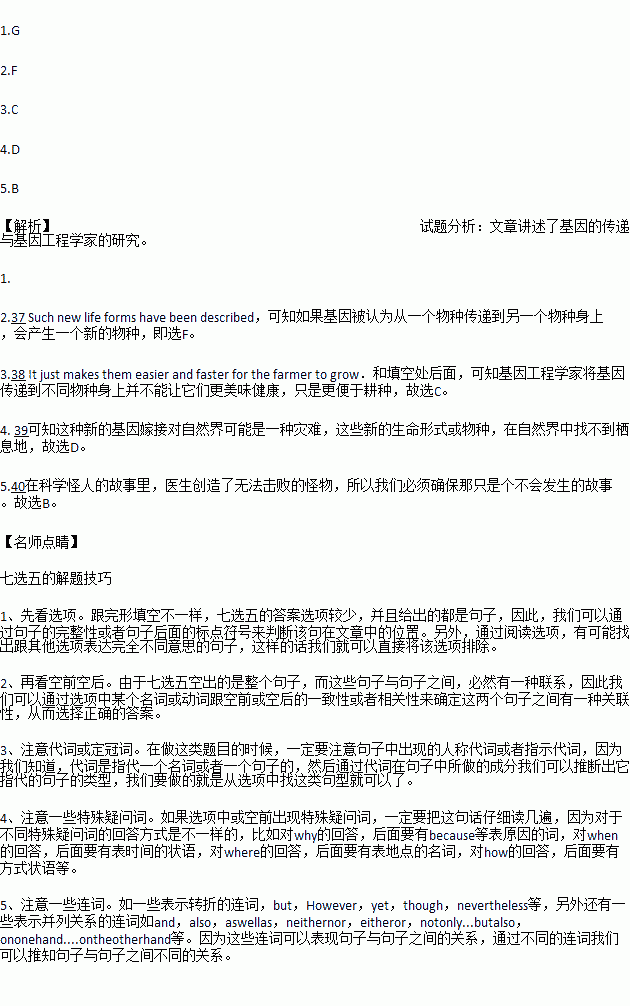题目内容
Every living thing has genes. Genes carry information. 1. They make sure that humans give birth to humans and cows give birth to cows. They also make sure that a dog doesn’t give birth to a frog, or an elephant to a horse. However, genetic engineers take genes from one species-for example, a snake, and transfer them to another-for example, corn. 2. Such new life forms have been described, by some scientists as a real-life Frankenstein(科幻怪人).
Genetic engineers put duck genes into chicken to make the chickens bigger. They put hormones(激素) into cows to make them produce more milk. They put genes from flowers into beans and from fish into tomatoes. 3. It just makes them easier and faster for the farmer to grow.
The effects of genetic engineering on the natural world may be disastrous. The engineers may create strange life beings, or monsters. that we cannot control. 4. They’ll have to find one, fight for one-or kill for one. It may be your land they fight for-or you that they kill. Moreover, the effects of these experiments can often be cruel. In America, pigs were given human genes to make them bigger and less fatty. The experiment failed. The pigs became very ill and began to lose their eyesight. We would all like a better, healthier and longer life, and genetic engineering might give us this. On the other hand, it may be a dangerous experiment with nature. In the story of Frankenstein, the doctor created such a terrible and dangerous monster that he had to destroy it. 5.
A. The information tells us what to do or what not to do
B. We must make sure that this tale remains a story-and no more than that
C. This doesn’t make them cheaper, tastier, or healthier
D. The new life forms have no natural habitat or home
E. Then they feed the tomatoes to the fish
F. In this way a new life form is created
G. They are passed on from generation to generation
 全优点练单元计划系列答案
全优点练单元计划系列答案
